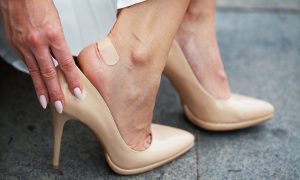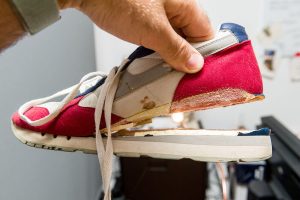How to Prevent Sweaty Feet
With summer around the corner, sweaty heat and foot odour are embarrassing realities that loom closer. Taking off your shoes at the end of a long summer day is a pleasurable experience. However, the smell could be far from pleasant if you have foot odour!
Bromodosis or foot odour is generally regarded as an offensive stench. While sweat is odourless, it provides an environment where bacteria can thrive. As sweat emerges from skin pores, the bacteria on the skin break down this sweat, resulting in a cheesy odour. You’re more likely to be affected if you’re on your feet all day, are under a lot of stress or have hyperhidrosis, which causes you to sweat more than usual.
In this article, we will not address this excessive sweating as it is a condition that often requires medical attention. However, if you’re facing the usual aftermath of a hot summer day, here are nine tried and tested tips to keep your feet smelling good.
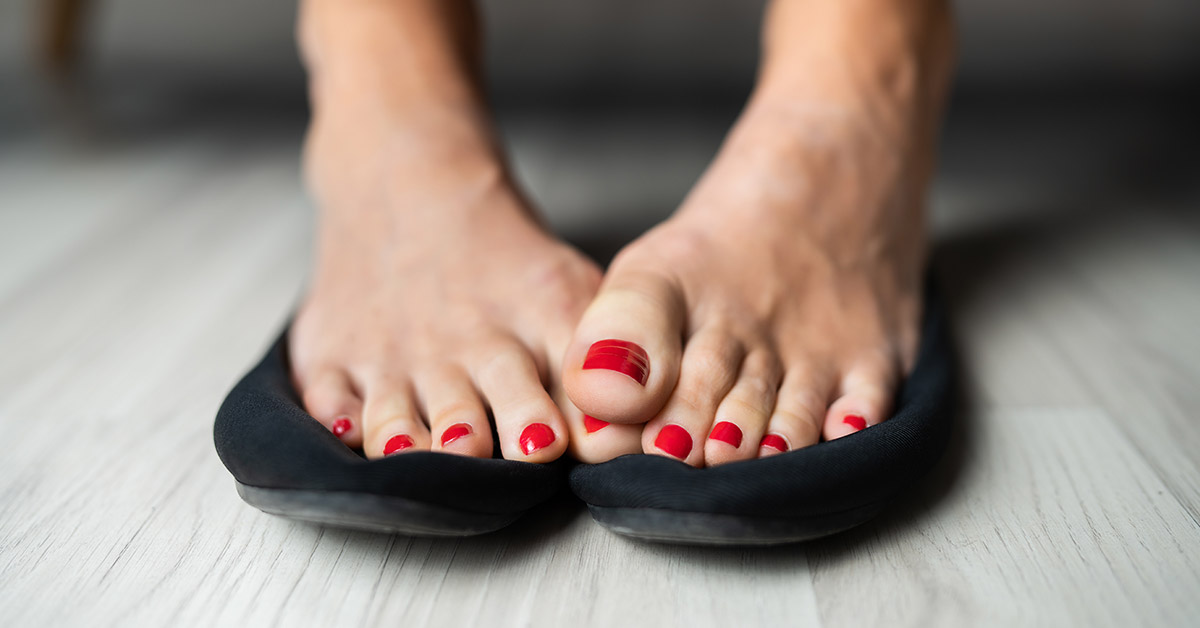
9 Tips to Keep Your Feet Smelling Good:
1. Wear the right socks
The proper pair of socks can prevent feet from excessive sweating. Avoid nylon socks as they do not absorb moisture and cause sweat to be trapped against the skin. The moist environment then creates a breeding ground for fungal infection and odour.
Cotton socks, on the other hand, provide excellent breathability, especially in summer. Socks that work to wick moisture away from the skin can also be very beneficial. For this reason, merino wool is also a good choice for summer. Since the fibres are finer and thinner than regular wool, they dry quickly. Some athletic socks have ventilation panels or chemicals that limit bacteria on the feet, reducing foot dampness and odour.
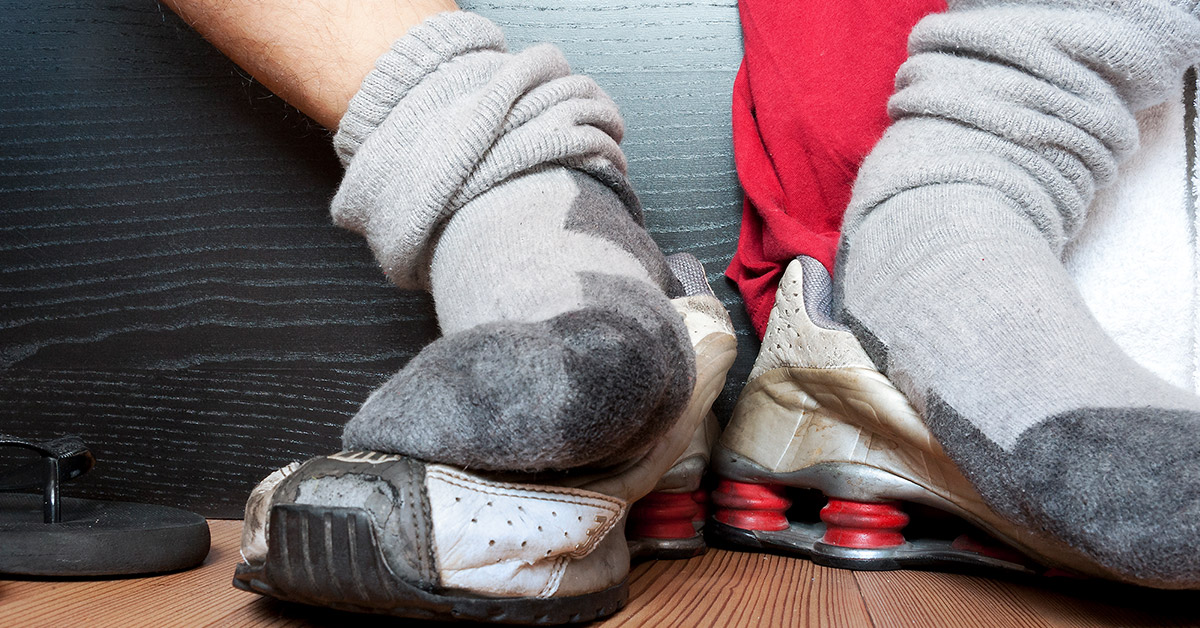
2. Choose the right shoes
Excessively tight shoes can crowd the toes and cause the feet to sweat. Also, avoid wearing boots, athletic shoes, or any other shoe that retains moisture. For instance, patent or plastic shoes restrict airflow and trap sweat inside the shoe.
Materials such as canvas or leather are breathable and therefore an excellent option. Additionally, insoles give relief to sweaty feet. Absorbent or deodorising insoles absorb moisture and prevent foot odour, while changeable absorbent insoles provide a further line of defence against odour.
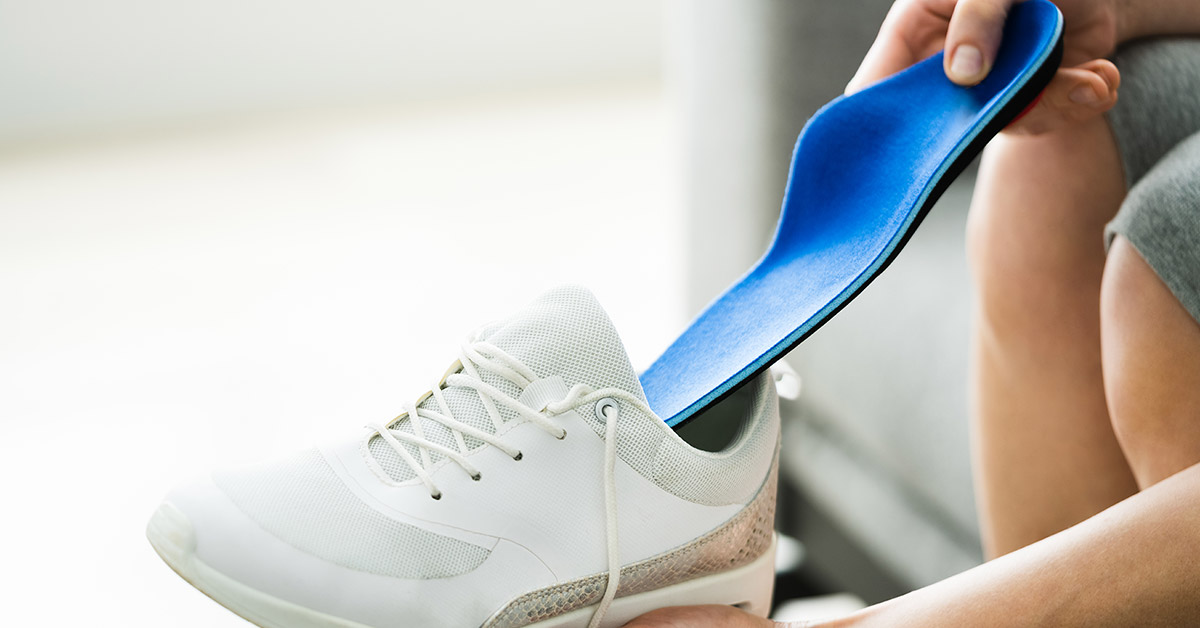
3. Exfoliate feet periodically
The process of eliminating dead skin cells from the body is known as exfoliation. It helps eliminate unsightly calluses and prevents your pores from becoming clogged. Dead skin cells are an ideal food source for microorganisms that cause odour, so getting rid of them is ideal.
Use an exfoliating brush or glove on your feet twice or thrice weekly to ward off bacteria. A person with particularly smelly feet may desire to use a pumice stone two to three times each week to prevent the buildup of dead skin.
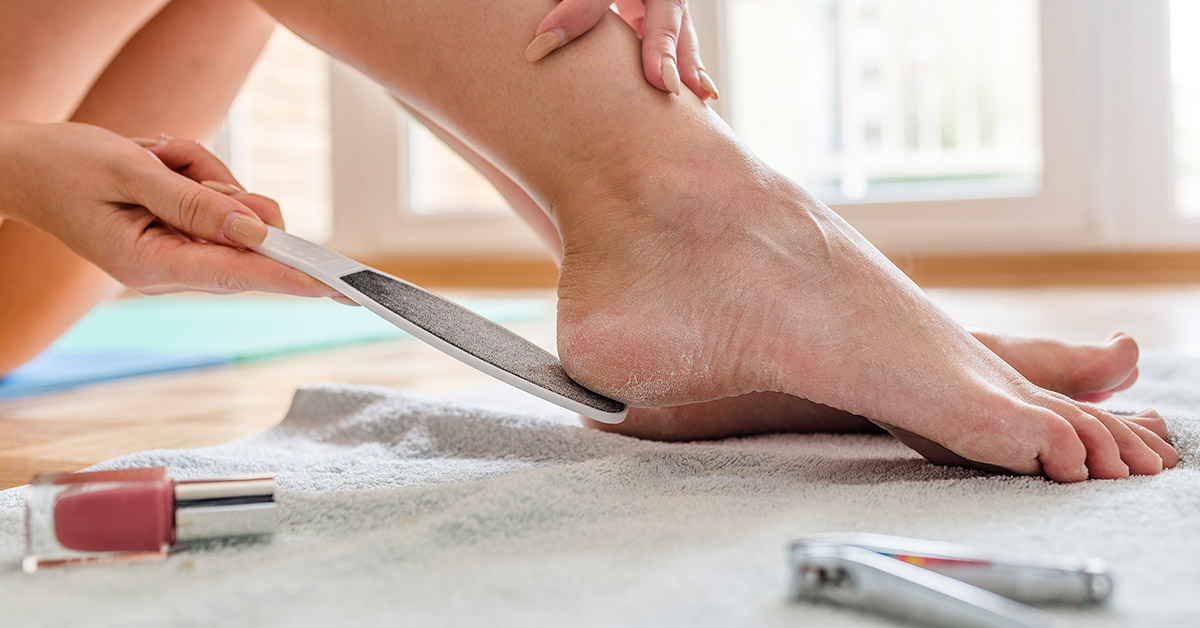
4. Apply antiperspirant
A deodorant antiperspirant is a simple cure for sweaty feet. They temporarily inhibit the sweat glands and are recommended by the International Hyperhidrosis Society (IHS) as a first-line treatment for foot odour.
The American Academy of Dermatology suggests applying antiperspirant to dry feet before bedtime and rinsing it off the following morning (at least 6 hours later). Wesweate less at night, and this would allow for more effective antiperspirant block deposition. The process will need to be repeated for three or four nights in a row and then used once or twice weekly. However, if you have sensitive skin, you may need to consult a physician before resorting to this method.
5. Use antifungal powders
It is vital to keep your feet dry to avoid fungal infections. Cornstarch is an excellent remedy for keeping the feet dry. Baby powder or talcum powder inside your socks is also very effective.
Antifungal foot powder also helps keep the feet dry and odourless and is an excellent way to combat fungal growth.
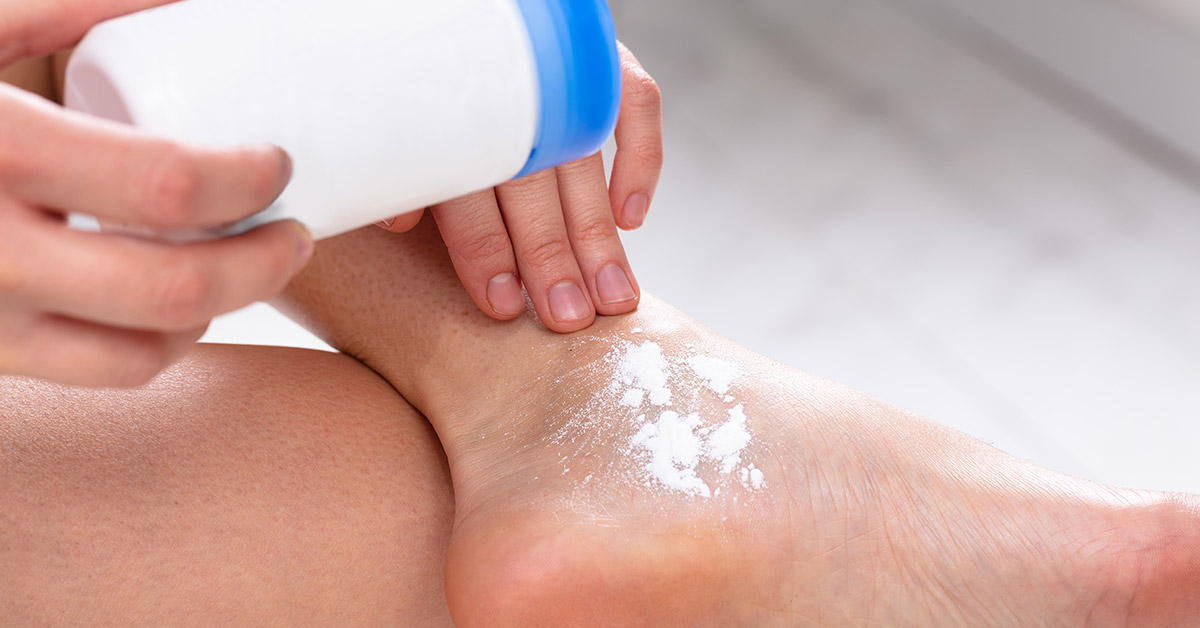
6. Use rubbing alcohol
Rubbing alcohol is a quick-fix remedy for sweaty feet. Apply a tiny amount between the toes for immediate relief. However, you should avoid using this therapy frequently since it can cause excessive foot dryness and skin irritation. Alcohol wipes also help to seal your pores and minimise perspiration temporarily. Perform this action before putting on your socks and shoes for the day.
7. Put baking soda in shoes
Baking soda is effective for eliminating foot odour and for cleaning smelly shoes. Mix two to three tablespoons of baking soda with warm water and soak your feet in the solution for twenty to thirty minutes. The baking soda kills bacteria on your feet and softens them, making it easy to remove dead skin. The alkaline nature of baking soda makes it a valuable cure for sweaty hands and feet, as it inhibits the growth of foul-smelling germs.
To eradicate foul smell from shoes, put some baking soda in them and shake it until the powder trickles down to the toes. The baking soda absorbs moisture from the shoes, preventing the growth of odour-causing germs. Additionally, baking soda absorbs existing scents, decreasing the lingering smell in your shoes by the following day. Adding a small quantity of antifungal powder to the baking soda will increase its ability to absorb moisture.
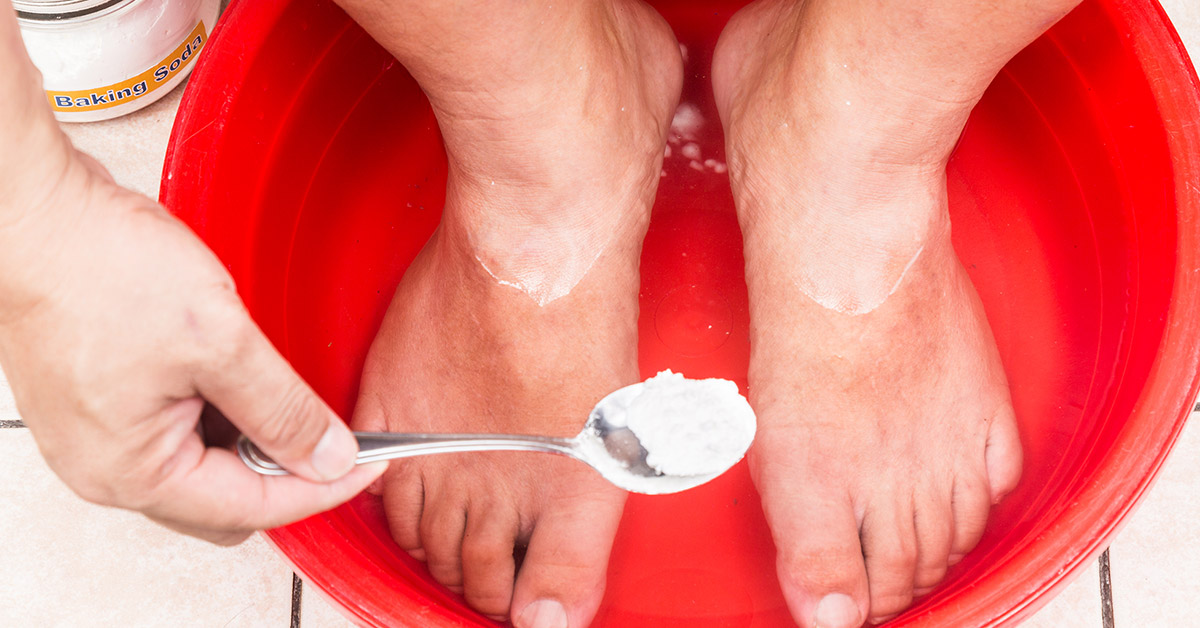
8. Maintain hygiene
Consistently following hygienic practices also helps eradicate foot odour.
Regular washing: This would help remove sweat and bacteria, cool the skin and inhibit future perspiration. Try to wash the feet at least twice a day using antifungal soap. Add a few drops of antimicrobial essential oil to the water, such as tea tree or eucalyptus. Apple cider vinegar too has antifungal and antibacterial effects.
Black tea soak: Black tea is a good antiperspirant. Soak the feet in warm water containing two black tea bags. The tannins in the tea constrict the skin’s pores and minimise perspiration.
Lemon juice: Before putting on your shoes and socks, apply fresh lemon juice to the soles of your feet using cotton balls. In addition to closing pores and preventing sweating, lemon juice is a natural deodorant.
Keep feet dry: Wet feet encourage the growth of germs and fungi, particularly in the spaces between the toes. Before donning cotton socks and breathable shoes, lightly dust the feet with antifungal powder or cornstarch.
Change socks regularly: When it is impossible to wash or bathe the feet, you should don a fresh pair of socks.
Change shoes between wears: Wearing footwear for prolonged periods makes the feet hotter and sweatier. When your feet begin to sweat, change into another pair of shoes. Also, avoid wearing the same pair of shoes for two consecutive days to allow the shoes to dry out between uses. On their ‘off’ days, leave the footwear outside for 1–2 hours to remove all moisture and let fresh air flow into the shoe.
9. Stay hydrated
The feet have more sweat glands per square inch than any other body region. Each foot contains roughly 125,000 sweat glands. It is crucial to remember that sweating is a necessary component of our body’s cooling function and results from the body’s efforts to control body temperature. During this procedure, the body’s sweat glands discharge excess heat. Drinking a great deal of water, particularly on hot days or when exercising, helps the body regulate its temperature and minimises the likelihood of sweating.
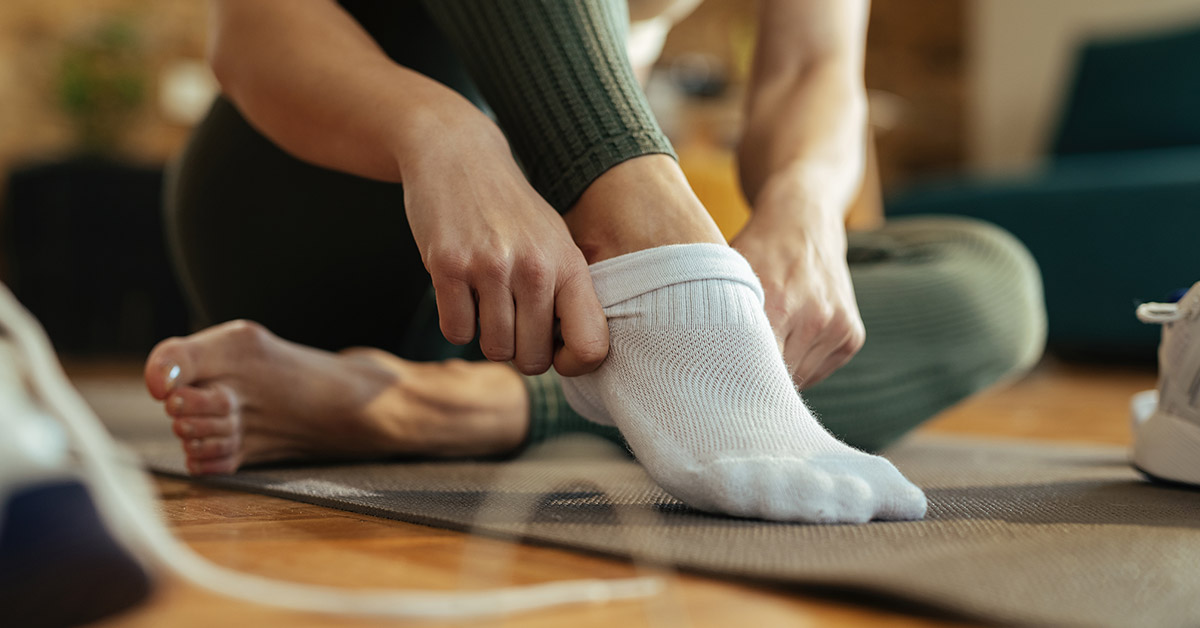
Also Read: How to find the best glue for shoes
When to see a doctor
While sweaty feet are not a medical emergency, they can lead to other health issues, such as foot odour, athlete’s foot, and toenail fungus. The smell, slipping, sliding, blisters and infection are just a few side effects of sweaty feet.
Your shoes, socks, diet, and emotional stress levels play a critical role in how much your feet sweat. The sweat glands on the soles of your feet respond primarily to your emotions. So people who are prone to anxiety, get nervous quickly or have a lot of emotional stress are more likely to have sweaty feet.
If the tips above do not reduce foot sweating, it may be best to seek medical advice. A doctor will diagnose excessive sweating by asking the individual to describe their symptoms and perform a physical exam. They may also do an iodine test for starch.
Doctors often treat the problem using prescription-strength antiperspirants such as Drysol, oral medications called anticholinergics, iontophoresis treatment, Botox injections (Botulinum Toxin) and sympathectomy.
If you have taken care of stinky feet but still have several smelly shoes to deal with, get in touch with the experts at Love Your Shoes. We specialise in shoe cleaning, footwear colour restoration, and shoe repair, and we’ll have your shoes smelling fresh and clean in no time. Call us today or fill out our online quote form to learn more about our services.


